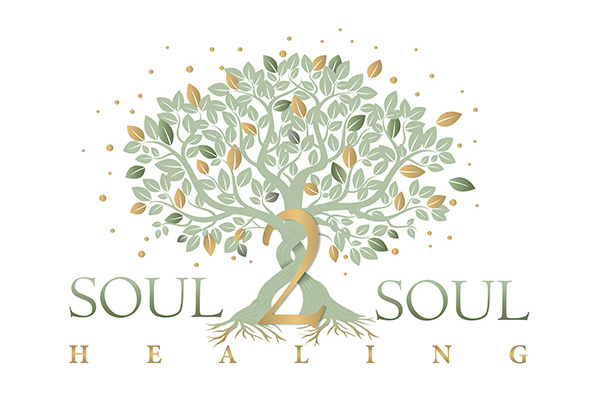Let’s talk about self-soothing, and how vital it is to the development and maintenance of any type of relationship you may find yourself in, romantic or otherwise.
Whether you are queer or straight, monogamous or consensually non-monogamous, no relationship goes without its fair share of arguments or disagreements. Conflicts are an inevitable part of a healthy relationship, especially when there are fundamental personality-differences coming in to play.
We’ll kick off this topic with a shared understanding of what self-soothing is exactly before exploring some of the benefits of self-soothing when it comes to managing relationship conflicts.
Then we’ll identify some common scenarios that may require the use of self-soothing to help manage emotional reactions.
We’ll conclude with a few self-soothing techniques you can try out for yourself the next time you feel upset, hurt, or invalidated by a significant person in your life.
Let’s dive in!
Self-Soothing as a Coping skill
Self-soothing refers to the practice of engaging in any behavior that promotes emotional regulation by oneself. Such behaviors may be considered adaptive while others may be considered maladaptive.
Adaptive behaviors allow people to cope with stress in a helpful way that is most conducive to the situation so they can adjust to their environment with greater ease.
An example of an adaptive behavior would be listening to audiobooks because you love to read, and your eyesight isn’t as good as it used to be or you can’t sit still long enough to read a physical book.
In the context of a relationship, an adaptive behavior might look like going for a walk after a heated argument to create some distance from the situation so you can collect yourself and revisit the discussion from a calmer state.
Maladaptive behaviors have the same intentions as adaptive behaviors. The key difference is that maladaptive behaviors are misguided attempts to cope with stress in a way that may perpetuate difficulty in adjusting to a new environment or situation.
An example of a maladaptive behavior would be smoking a little some thing every time you feel overwhelmed because you want to clear your head and feel instant relief, even though you know it may not be good for your long-term health or it may compromise the integrity of your academic or work performance.
In the context of a relationship, a maladaptive behavior might look like feigning solidarity, or people pleasing, to diffuse tension or avoid conflicts because you’d rather compromise your well-being then risk potentially losing the relationship.
Anything you do to regulate your emotions and increase your tolerance to stress can be considered a coping skill for self soothing when emotions run high.
Why Self-Soothing is Important
Now that we have an understanding of what self soothing is, let’s talk about its role in managing conflicts.
Knowing how to calm or soothe yourself during an argument can help you dial down your physical response and automatic reaction to stress.
Self-soothing skills can help you keep your cool and stay calm enough to handle difficult conversations with greater mindfulness so you don’t end up saying or doing something you’ll regret.
When you are feeling calm and grounded, it’s easier to empathize with where another is coming from. You will be less defensive and more open to brainstorming solutions and exploring pros and cons with consideration for each others perspective.
Self-soothing as a coping skill also opens the door to deeper intimacy by allowing effective communication to occur without heightened emotions getting in the way of how a message is being delivered or received.
By practicing self soothing techniques regularly, you can increase your emotional resilience by learning how to expand your tolerance to stress.
When to Self-Soothe in a Relationship
At this point, you should have a pretty good idea of what self-soothing is and why it is such an essential skill to have in your relationship/well-being toolbox.
Now let’s discuss common scenarios you may have encountered when knowing how to physiological self-sooth would be super clutch.
When you and your partner have a disagreement relating to fundamental differences in values. Where to live, how to manage finances or raise children, whether or not to open up your relationship — these are just a few examples of how differences in values can create perpetual conflicts. Self-soothing can help you accept those differences as you learn to work through them over a series of conversations before arriving at some kind of a resolution.
When you feel criticized, invalidated or disrespected by someone you love or care about. Criticism is a silent killer of relationships. It is often followed by its close companion defensiveness. Knowing how to self soothe can make all the difference in whether or not you take something personally. Is the criticism really a reflection of you, or a projection of how your partner may be feeling toward themself?
When you or your partner’s emotional reactivity gets in the way of a productive conflict discussion. Sometimes an argument can get so heated that one or both partners may lose control of their emotions. That would be a really good time to practice regulating your emotions to stop yourself for saying or doing something that you may ultimately regret.
When your partner decides to stonewall you and refuses to speak to you for an uncertain period of time. Stonewalling behavior may increase your anxiety thereby strengthening your resolve to push the issue even further.The best thing to do for yourself (and your partner) is to find an alternative way to cope independently of your partner. Self-soothing is especially recommended in this kind of situation.
When you feel completely misunderstood by someone who misinterpreted your words or actions. You can have the best of intentions, but sometimes your message doesn’t land the way you may have hoped. Misunderstandings happen all the time. Self-soothing can help you maintain the objectivity necessary to ensure effective communication between sender and receiver
Techniques for Soothing Yourself When Experiencing Emotional Distress
There are literally hundreds of ways to calm and relax yourself when feeling emotionally charged by a stressful situation. When this flooding of emotions happens, the brain sends a signal to the rest of the body that it may be in danger. Here are some common relaxation techniques you can use to let the brain know that you are okay.
1. Deep Breathing
One of the simplest ways to calm your central nervous system when it is hyper-aroused is by slowing down the breath.
It can be as simple as breathing in so deeply you can not take in anymore oxygen before breathing out all the air you took until there’s nothing left and then repeating the process about five times for a solid minute.
Another popular breathing technique is referred to as boxed breathing which involves inhaling for a count of four and holding the breath for a count of four before exhaling for a count of four, then holding the breath for another count of four before repeating the process as many times as it takes for your to feel calmer.
2. Engaging the Five Senses
Another simple way to practice self-soothing is by engaging the five senses. Start by naming five things you can see, four things you can feel and three things you can hear. Proceed by naming two things you can smell and one thing you can test. Then choose at least one of the five senses to further engage with.
Examples of engaging with the senses include lighting a candle and watching it burn (vision), singing your favorite song (hearing), aromatherapy (smell), indulging in your favorite food (taste), or taking a bubble bath (touch). This techniques helps ground you in the present moment.
3. Progressive Muscle Relaxation
This technique involves physically tensing and relaxing different muscle groups throughout the body, one group at a time. For each area of the body, hold the tension in the body as you inhale for about few seconds before relaxing the body as you exhale.
Practice saying to yourself the word “relax” as you relax the muscles. Notice the feeling of physical relaxation as you work through each muscle group. The goal of this technique is to reduce muscle tension often associated with anxious feelings.
4. Mental Imagery
This technique involves the practice of using your imagination to create a safe place within your mind or recall a pleasant memory that helps you bring feelings of comfort into the present moment. By leveraging the five senses, you can use mental images, sounds, feelings and sensations to help you feel better in the moment.
All you have to do is close your eyes, take a few deep breaths and think of a calming place that relaxes you. You can imagine being at the beach or somewhere outdoors in nature. You can even imagine being at your favorite vacation spot or in a whole new world where there’s not a care in the world.
5. Physical Exercise
One tried and true way to really take care of yourself when you’re feeling emotionally reactive is through physical exercise. Not only does it work as a welcomed distraction, but it also helps allow the energy of your emotions to flow through you and out of your body through physical exertion of lingering emotions that may get trapped in the body.
Simple stretching, practicing yoga, going for a walk, running or strength training are all great ways to regain a sense of self-control when coping with circumstances beyond your control.
6. Spirituality
We wouldn’t be Soul 2 Soul without this particular way of self-soothing! For us, this means turning the situation over to something greater than yourself, whether that be a God of your own understanding, or the universe, life force energy, Mother Earth or Spirit, depending on your particular belief system. Many people find it incredibly helpful to lean into their spirituality to ask for support, guidance, or direction to experience a new perspective or more aligned thoughts and actions. Connecting to a higher power, whatever that may mean to you, often leads to greater peace and serenity.
Start Cultivating Stronger Relationships Today
Self-soothing is an essential skill for the maintenance of a long-lasting relationship. Learning how to self-soothe supports conflict resolution by promoting emotional regulation. While there are many ways to do it, the best will be whatever works for you.
Couples therapy can be helpful way to work through relationship conflicts. Through relationship counseling, you and your partner can learn to communicate more effectively and better understand each other in a meaningful way. A deeper understanding of each other’s worldview and attachment style paves the way for deeper intimacy and connection. A qualified couples therapist can help you and your partner identify effective ways to self-soothe while staying connected. As you learn to self-soothe during conflicts, you eventually learn how to help your partner self-soothe too, creating more space in the relationship for empathy and compassion.
Contact Soul 2 Soul Healing Today to Schedule Your Free Consultation!

